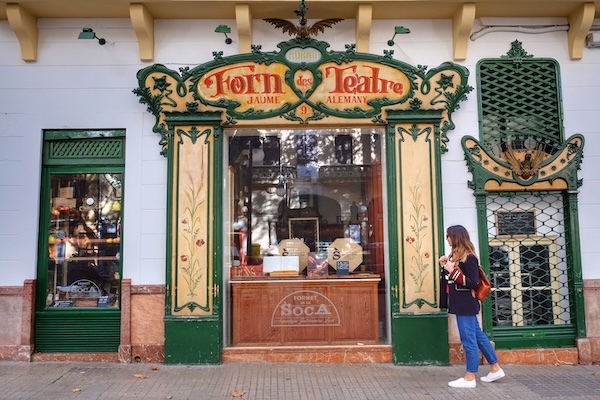Palma sets a three-year strategy to boost gastronomic tourism, joining other Med cities.
- Palma is embracing its culinary treasures as a central theme in its tourism strategy for the upcoming three years, inviting visitors to indulge in its diverse and rich food culture.
- The Balearic capital aims to enhance its tourism appeal by leveraging its four Michelin-starred restaurants, alongside vibrant markets, cafes, and tapas bars, to offer visitors an authentic taste of the city.
- In collaboration with cities like Barcelona, Cartagena, and Valencia, Palma will partake in the Culinary Mediterranean Cities initiative, focusing on shared culinary values and traditions.
- The local tourist board is curating unique gastronomic experiences that celebrate Palma’s tradition of using top-quality ingredients sourced from the surrounding sea and mountains.
Palma is embracing its culinary treasures as a central theme in its tourism strategy for the upcoming three years, inviting visitors to indulge in its diverse and rich food culture. The city boasts four Michelin-starred restaurants and a plethora of traditional markets, cafes, and tapas bars, offering guests an authentic taste of Palma.
The Balearic capital’s tourism strategy seeks to enhance its appeal by leveraging its renowned culinary scene. By joining the Culinary Mediterranean Cities initiative, Palma is aligned with cities such as Barcelona, Cartagena, and Valencia, aiming to spotlight shared culinary traditions and values.
Palma’s participation in the Culinary Mediterranean Cities initiative highlights its collaboration with other Spanish cities to enhance gastronomic tourism. This initiative aims to create extraordinary and high-value experiences, deeply rooted in local cuisines and cultures.
The core of Palma’s gastronomic allure lies in its use of top-quality ingredients sourced from the sea and mountains, a fact highlighted by the city’s traditional markets that charm tourists and locals alike. Expert chefs contribute significantly by imparting their passion and knowledge of local and Mediterranean cuisines.
According to the tourist board manager, Pedro Homar, the city’s success in culinary tourism is attributed to the synergy between quality ingredients and passionate chefs. This synergy is set to be furthered by hosting various culinary events throughout the year, focusing on tastings and cultural exchanges.
Palma’s strategic shift towards gastronomy promises to enrich its tourism landscape, offering visitors a genuine taste of its culinary heritage.

